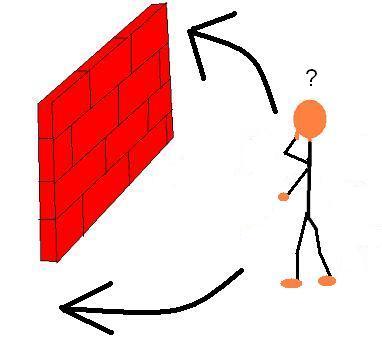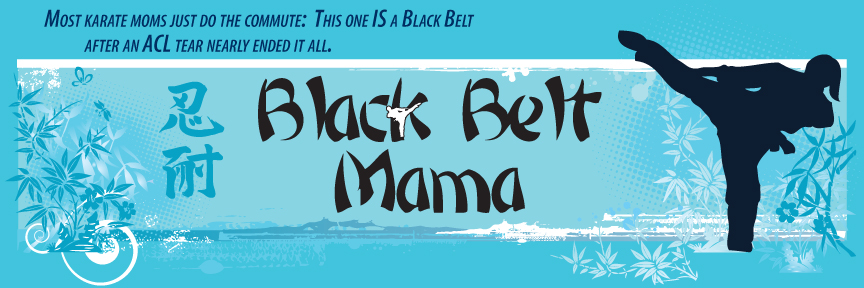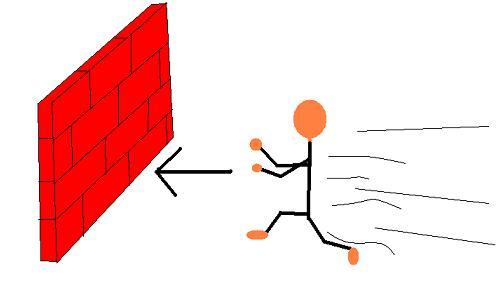December 20, 2007
For BBM, From the Okinawa Kenpo Side
Hello BBM Readers! It is my privilege to write for BBM today while she is going through her recovery. I’m sure all of our well wishes are with her!
Just as a quick note – this post will not contain any information about underwear or pimped out crutches; those things are specialties of BBM and I couldn’t possibly encroach on her territory (not to mention I might incur the BBM wrath). But what I WILL try to do is offer something useful in the karate realm.
Holding True with a Wandering Mind
Matthew Apsokardu
One concept I keep running into during my training is balance. Some say yin and yang, others say in and yo. But basically it boils down to giving two opposing forces their fair share. If I train my right hand, I should train my left hand. If I practice punches, I should practice kicks. If I develop my body, I should develop my spirit. You can see how infinite these little examples can be (10,000 conflicts, the Japanese might say). But there is one kind of balance that has struck me lately and I would like to investigate it………
Have you ever found yourself puzzling over a tough math equation, but continuously getting stuck? How about trying to brainstorm an English paper (especially when it’s due the next day), but suffering from crampy writer’s block? I think we’ve all felt the hair tugging frustration these situations invoke. At these moments, it’s likely you do what most people do – get up and give yourself some breathing space. Let your brain air out. And when you sit back down, the problem at hand looks completely different, and not so terrible.
I believe the same can be true for karate.
In general, martial arts training is very gung-ho. We tend to go full-out, 110%. And that’s a good thing. Without that kind of commitment it’s impossible to become truly great at anything. But in karate, just like with the math equation, it’s very easy to run into seemingly insurmountable problems. However, UNLIKE the math equation, many karate practitioners have a hard time stepping back. They feel discouraged at their lack of progress and try to push their material harder and harder.
Consider this visual –
This unfortunate karateka keeps running headlong into that beautifully crafted brick wall. He’s a karate man, so he should be able to pound through it, right? Well…maybe, but what happens if he relaxes for a moment and let’s his mind wrap around the situation –

Look at that! Ohh he’s a quick one.
Seems silly and intuitive, I know. But I actually poke fun at MYSELF with these pictures because it wasn’t until recently when I took a step back from karate that I began to see it in a whole new light. I noticed many awkward, unnatural things I was doing, and how easily I could improve myself. Also, certain solidified concepts in my mind began to merge with floating ideas that I developed outside the dojo. Such combinations would not have occurred without a little bit of distance.
My budo instructor has a saying – "Sometimes martial arts can be like rolling down a train track with blinders on. It’s very easy to chug along, always straight ahead."
I’m tending to agree, more and more. I believe a practitioner should train hard and chip away at all their imperfections, but also take time to step back. Refocus. Reconsider things, especially after they’ve become stagnant with repetition. I’d like to quote another great instructor who has a newsletter called Okinawa No Shorin-Ryu Karate-do Kenkyu-Kai Shimbun. In it, he says – "When the young study karate it is ok for it to be recreational, but, when more mature practitioners train it should be re-creational."
MA
—————————————-
A Final thought – Some people are given bad situations like BBM – she is forced into a training hiatus due to surgery. But just imagine the amazing opportunity she will have to really examine the way she learns and the way her body changes (especially in mobility) as time passes.
























Matthew – Great point. As much as I like the martial arts, I have had interesting discussions with outsiders about the cult-like feel to it. The unquestioning loyalty to your sensei and his/her methods. The visible hierarchy etc. Few indeed think about stepping back and thinking. I like it.